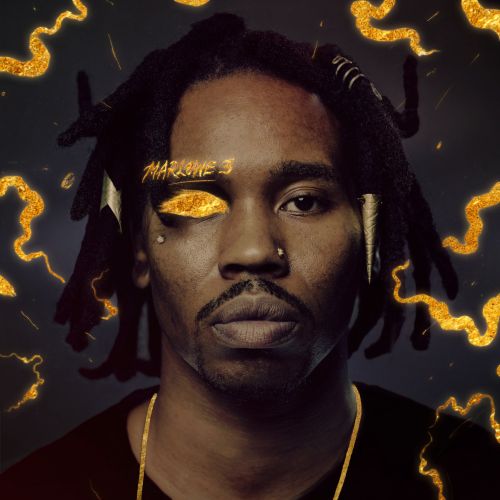Marlowe is North Carolina emcee Solemn Brigham and Seattle producer L’Orange, named after the famous English playwright Christopher Marlowe. It’s an interesting decision to use Marlowe’s name, given his stature as one of the few poets in England to be a household name, or at least he was around my parts given he was born in Canterbury, a city I grew up in. The theatre is named after him, he attended the world’s oldest school (King’s) and supposedly influenced a bloke called William Shakespeare. Big shoes to follow, although the mention of Marlowe in the hip-hop arena is just as likely to evoke memories of The Wire’s ruthless antagonist Marlo Stanfield. Solemn Brigham’s approach to rap is probably more Marlo, rapid-fire in its approach and coldly calculated in its effectiveness, whereas L’Orange’s worldly crate-digging experience always offers up a more thoughtful musicality that could be interpreted as poetic in its own way. Regardless of what the duo is called, they have shown improvements since their debut in 2018, but their output still doesn’t grab me as much as I want it to.
I enjoyed the first two Marlowe albums but they possessed an intrinsic sameness owing to Brigham’s flow and a lack of guest features. Songs are often structured with slow hook/fast rap combos that border on formulaic, occasionally striking gold with individual songs such as “Lost Arts” or “Small Business” thanks to L’Orange’s knack for a thigh-slapping instrumental. L’Orange has mastered his craft and continues to be underappreciated.
There’s an explosive quality to “My People” and these moments showcase the duo’s chemistry. A lot of emcees and producers collaborate but can feel like a hodgepodge of bars and beats rather than a natural combination, however, this track has an organic feel that would benefit further in a live environment. Furthermore, the way Brigham attacks the microphone in fits and bursts leans into the emotional ups and downs of a live show, which is often more hit-and-miss in studio recordings.
The beat on “Light Trip” is undeniably crazy, and probably one of my favorites of 2022. The hook work is strong too and the second verse sees a slower, more conversational approach with some flow switches that for me at least, prove more effective. It’s a highlight, hell, it’s not dissimilar to some of Kendrick Lamar’s work, yet ultimately the message and what Kendrick says that elevates his rapping to a higher level is where I feel Brigham’s performances can fall short. As technically astute as he is, his presence can fail to connect or convince in a way that either of the guests can on the track “Royal”. In Blu and Joell Ortiz, we have two of the better emcees of the last fifteen years, and while the former’s voice sounds gruff – perhaps possessing a cold at the time of recording – the latter confirms Ortiz as a charismatic, captivating listen into his 40s.
There are valid attempts to mix things up; “Past Life” replicates the sensation of a different voice with Brigham himself switching up his tone via 12-bar verses, but it possesses a surface-level autobiographical stance devoid of detail or reference points. The album tails off with the last few tracks, and streaming figures indicate listeners lose interest after “Godfist”, which, much like “Plenty Dreams” sounds like a stereotypical Marlowe track.
Commendably breathless in execution and expertly crafted by L’Orange, “Marlowe 3” will undoubtedly have its fans, but it leans into the hollow performative nature of dispersing words like bullets too often to leave its mark on this listener.

